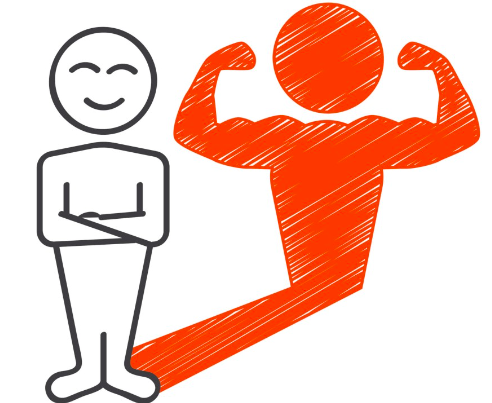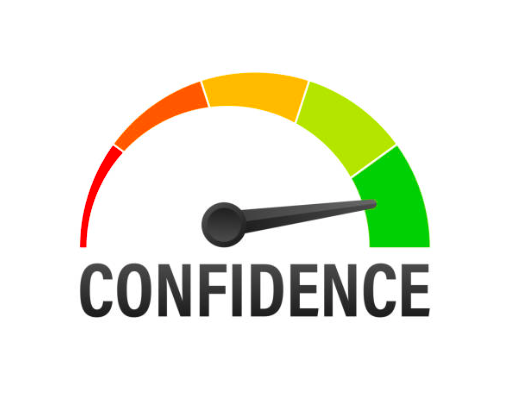In today’s world, confidence is crucial in shaping a woman’s life. It is the key that unlocks opportunities, fuels success, and allows women to navigate challenges with grace and resilience. Confidence isn’t just about external appearances; it’s an inner strength that radiates from within. If you want to enhance your self-assurance and become a confident woman, this article will guide you through practical steps to embrace your true self, overcome obstacles, and thrive in all areas of life.
Introduction
Confidence is more than just a state of mind; it reflects how we perceive ourselves and present ourselves to the world. As a woman, it’s essential to cultivate confidence to assert yourself, pursue your dreams, and overcome societal pressures. In this article, we’ll explore various strategies to help you become a confident woman, celebrating your uniqueness and embracing the power within you.
Embracing self-acceptance
Self-acceptance is a transformative and empowering practice involving embracing and valuing oneself for who you are. It goes beyond mere self-esteem and encompasses a deep sense of worthiness, self-love, and authenticity. Self-acceptance is crucial for personal growth, well-being, and building a solid foundation of confidence. This is notably important for women who often face societal pressures and unrealistic standards that can erode their self-confidence.

Societal standards and expectations can significantly impact women’s confidence levels. Unrealistic beauty ideals, gender roles, and cultural norms often create a narrow definition of what it means to be a “perfect” woman, leading to feelings of inadequacy and self-doubt. Media portrayals, social media influence, and societal messaging can perpetuate harmful comparisons and create a constant sense of striving for an unattainable ideal. This can undermine women’s self-esteem, body image, and overall sense of worthiness, making it essential to challenge and overcome these societal pressures.
To embrace self-acceptance:
- Challenge societal beauty standards.
- Practice self-compassion and self-forgiveness
- Focus on your strengths and achievements.
- Surround yourself with a positive environment and role models.
Building a positive mindset
Building a positive mindset is crucial for developing confidence and achieving personal growth. Mindset refers to how we perceive and interpret the world around us and the beliefs and attitudes we hold about ourselves. It significantly influences our thoughts, emotions, and behaviors. Regarding confidence, mindset plays a fundamental role in shaping our self-perception and belief in our abilities.
A positive mindset involves cultivating empowering beliefs about oneself and the world. It entails focusing on strengths, possibilities, and solutions rather than dwelling on limitations and failures. By adopting a positive mindset, individuals can develop the confidence to face challenges, take risks, and persist despite setbacks. Here’s how mindset contributes to confidence-building:
- Self-belief: A positive mindset fosters self-belief, leading to increased confidence. When you have faith in your abilities, skills, and potential, you are more likely to confidently approach new situations, knowing that you have what it takes to overcome obstacles and succeed.
- Resilience: A positive mindset helps develop resilience, which is crucial for building confidence. Resilience is the capacity to reflect on failures, setbacks, and disappointments. When you have a positive mindset, you view failures as opportunities for maturing and learning rather than as reflections of your worth. This resilience enables you to maintain confidence even in the face of challenges.
- Positive self-talk: Mindset influences how we speak to ourselves, and positive self-talk is a powerful tool for building confidence. Replacing negative or self-defeating thoughts with positive and empowering statements can boost your self-esteem and reinforce your belief in your capabilities.
Now, let’s discuss the power of positive affirmations in building a positive mindset and enhancing confidence. Positive affirmations are short, specific statements that are repeated to oneself to reinforce positive beliefs or qualities. Here’s how they can be beneficial:
- Rewiring the brain: Affirmations help rewire the brain by creating new neural pathways and reinforcing positive thought patterns. By consistently repeating positive affirmations, you can shift your mindset and gradually replace negative self-talk and limiting beliefs with empowering and confidence-building thoughts.
- Boosting self-esteem: Positive affirmations are an effective tool for boosting self-esteem and cultivating a positive self-image. Regularly affirming your strengths, capabilities, and worth enhances your self-perception and develops a stronger sense of confidence.
- Focusing on possibilities: Affirmations direct your attention toward positive outcomes and possibilities. They help you visualize success, overcome self-doubt, and stay motivated. By consistently reinforcing positive affirmations, you train your mind to see opportunities and believe in your ability to achieve them.
It’s important to note that while positive affirmations will be a valuable tool, they are most sufficient when accompanied by consistent action, self-reflection, and a supportive environment. Building a positive mindset and developing confidence is an ongoing process that requires effort, self-awareness, and patience.
Setting goals and taking action
Setting goals delivers a sense of direction and purpose, propelling you forward on your journey to becoming a confident woman. Define your aspirations and break them down into achievable steps. Taking action toward your goals boosts your confidence and reinforces your belief in your abilities.
To set goals and take action:
- Define your long-term and short-term goals
- Break them down into actionable tasks
- Create a timeline and hold yourself accountable
- Celebrate each milestone and use setbacks as learning opportunities
When you witness your progress and see your dreams becoming reality, your confidence will soar, and you’ll be motivated to reach even greater heights.
Overcoming self-doubt and fear
Self-doubt and fear can be significant roadblocks on the path to confidence. Recognize that everyone experiences these emotions at times, but learning how to overcome them is essential. Face your fears head-on and challenge the negative beliefs that hold you back.
To overcome self-doubt and fear:
- Identify the root causes of your self-doubt
- Reframe negative thoughts into positive affirmations
- Step outside your comfort zone regularly
- Surround yourself with a supportive network
By confronting your fears and embracing new experiences, you’ll gradually build resilience and realize you can achieve more than you ever imagined.
Developing self-care practices
Self-care is not selfish; it’s vital to building confidence and maintaining overall well-being. When you prioritize self-care, you show yourself love and respect, enhancing your confidence. Take a moment to nurture your physical, mental, and emotional health.
To develop self-care practices:
- Establish a self-care routine that suits your needs
- Engage in activities that rejuvenate and energize you
- Practice mindfulness and relaxation techniques
- Specify boundaries and learn to say no when necessary
When you prioritize self-care, you recharge your batteries, boost your self-worth, and cultivate a strong foundation for confidence to thrive.
Cultivating supportive relationships
The people we surround ourselves with exceptionally impact our confidence. Seek out relationships that uplift and support you. Surrounding yourself with positive influences, mentors, and like-minded individuals can amplify your self-belief and provide a robust support system.

To cultivate supportive relationships:
- Assess your current relationships and identify toxic or draining individuals
- Seek out mentors and role models who encourage you
- Engage in communities and groups that align with your interests and values
- Communicate your needs and boundaries in relationships
A network of supportive relationships can serve as a pillar of strength during challenging times and help you remain motivated on your journey to confidence.
Developing assertiveness and communication skills
Being assertive and effectively communicating your thoughts and feelings are vital skills for a confident woman. Assertiveness allows you to express yourself authentically, set boundaries, and confidently assert your needs and opinions. Effective communication fosters healthy relationships, empowers you to advocate for yourself, and ensures your voice is heard.
To develop assertiveness and communication skills:
- Practice active listening and empathetic communication
- Learn to express your thoughts and feelings assertively but respectfully
- Use “I” statements to convey your perspective and avoid blaming others
- Seek opportunities to practice assertiveness in everyday situations
As you become more comfortable asserting yourself and expressing your thoughts, your confidence will flourish, and you’ll cultivate deeper connections with those around you.
Overcoming setbacks and embracing resilience
Setbacks and failures are inevitable on the journey to confidence. The key is to embrace resilience and view these challenges as opportunities for development and learning. Create the ability to bounce back from setbacks, adapt to change, and persevere in adversity.
To overcome setbacks and embrace resilience:
- Embrace a growth mindset and see failures as stepping stones to success
- Reframe setbacks as learning experiences and focus on the lessons they provide
- Seek support from friends, family, or a mentor during challenging times
- Practice self-compassion and remind yourself that setbacks do not define your worth
By developing resilience, you’ll navigate obstacles gracefully, learn from setbacks, and emerge more robust, confident, and ready to take on new challenges.
Seeking professional support
Seeking professional help, such as therapy or coaching, can be an excellent option for individuals facing challenges or seeking personal growth. It’s essential to recognize that everyone can benefit from professional support at different times. Here are some key points highlighting the benefits of therapy or coaching:
- Emotional support: Professional help offers a safe, non-judgmental space to voice your thoughts, feelings, and concerns. Therapists and coaches are trained to provide empathy and understanding, helping you navigate through difficult emotions and experiences.
- Personal growth: Therapy and coaching can facilitate personal development by helping you gain insights into your thinking patterns, behaviors, and relationships. They provide guidance and tools to promote self-awareness, enhance your strengths, and overcome limitations.
- Problem-solving skills: Professionals can assist you in developing effective coping strategies and problem-solving skills. They provide practical techniques and perspectives to address challenges, manage stress, and make better decisions.
- Improved relationships: Therapy and coaching can enhance your interpersonal and communication skills. By gaining a more in-depth understanding of yourself, you can foster healthier relationships and improve your connections with others.
- Mental health support: Seeking professional help is crucial for addressing mental health concerns. Therapists are trained to diagnose and treat various mental health conditions, offering evidence-based interventions to alleviate symptoms and improve overall well-being.
- Confidentiality: Professional therapists and coaches adhere to strict confidentiality guidelines, ensuring your personal information remains secure and private. This confidentiality creates a safe space for open and honest conversations.
Finding proper professional support:
- Referrals from trusted sources: Seek recommendations from friends, family, or healthcare professionals who have had positive experiences with therapists or coaches.
- Online directories: Utilize online platforms and directories that provide comprehensive listings of therapists or coaches. Psychology Today, GoodTherapy and BetterHelp are popular resources.
- Insurance provider: Check with your insurance provider to understand the coverage for therapy or coaching services. They may provide a list of approved providers in your network.
- Professional associations: Research professional associations such as the American Psychological Association (APA) or the International Coach Federation (ICF). These organizations often have directories of qualified professionals.
- Initial consultation: Many therapists and coaches offer an initial consultation or phone call to discuss your needs and determine if they fit you. Use this opportunity to ask questions and ensure you feel comfortable with the professional.
Finding the right therapist or coach may take some time, and finding someone who aligns with your specific needs and goals is essential. Feel free to contact multiple professionals until you find the right match.
Conclusion
Becoming a confident woman is a journey of self-discovery, self-acceptance, and personal growth. It requires embracing your uniqueness, nurturing your mindset, and taking intentional steps to overcome obstacles. By practicing self-care, cultivating supportive relationships, and developing assertiveness, you’ll unlock your true potential and radiate confidence in all aspects of your life.
Remember, confidence is not a destination but an ongoing process. Embrace the challenges, celebrate your successes, and continue to evolve and grow as a confident woman.
FAQs (Frequently Asked Questions)
- Q: Can confidence be learned, or is it something you’re born with? A: Confidence can be learned and developed through self-reflection, practice, and adopting empowering beliefs and behaviors.
- Q: How long does it take to become a confident woman? A: Building confidence is a lifelong journey, and the timeline varies for each individual. It relies on your willingness to grow, the effort you invest, and the challenges you encounter.
- Q: What if I face setbacks or experience self-doubt despite my efforts? A: Setbacks and self-doubt are natural parts of the process. Embrace resilience, learn from setbacks, and seek support from loved ones or professionals to help you navigate challenging times.
